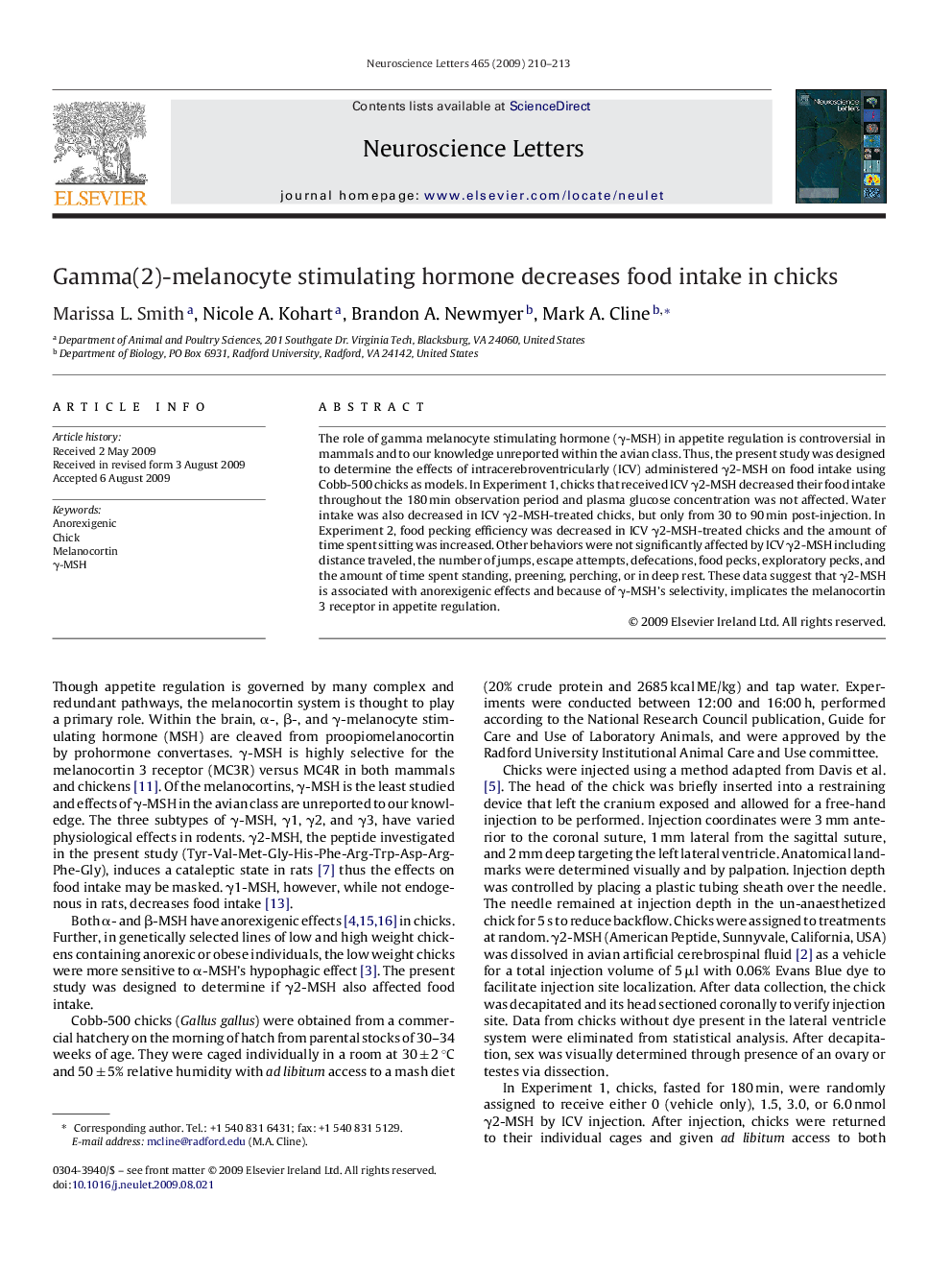| Article ID | Journal | Published Year | Pages | File Type |
|---|---|---|---|---|
| 4347328 | Neuroscience Letters | 2009 | 4 Pages |
The role of gamma melanocyte stimulating hormone (γ-MSH) in appetite regulation is controversial in mammals and to our knowledge unreported within the avian class. Thus, the present study was designed to determine the effects of intracerebroventricularly (ICV) administered γ2-MSH on food intake using Cobb-500 chicks as models. In Experiment 1, chicks that received ICV γ2-MSH decreased their food intake throughout the 180 min observation period and plasma glucose concentration was not affected. Water intake was also decreased in ICV γ2-MSH-treated chicks, but only from 30 to 90 min post-injection. In Experiment 2, food pecking efficiency was decreased in ICV γ2-MSH-treated chicks and the amount of time spent sitting was increased. Other behaviors were not significantly affected by ICV γ2-MSH including distance traveled, the number of jumps, escape attempts, defecations, food pecks, exploratory pecks, and the amount of time spent standing, preening, perching, or in deep rest. These data suggest that γ2-MSH is associated with anorexigenic effects and because of γ-MSH's selectivity, implicates the melanocortin 3 receptor in appetite regulation.
